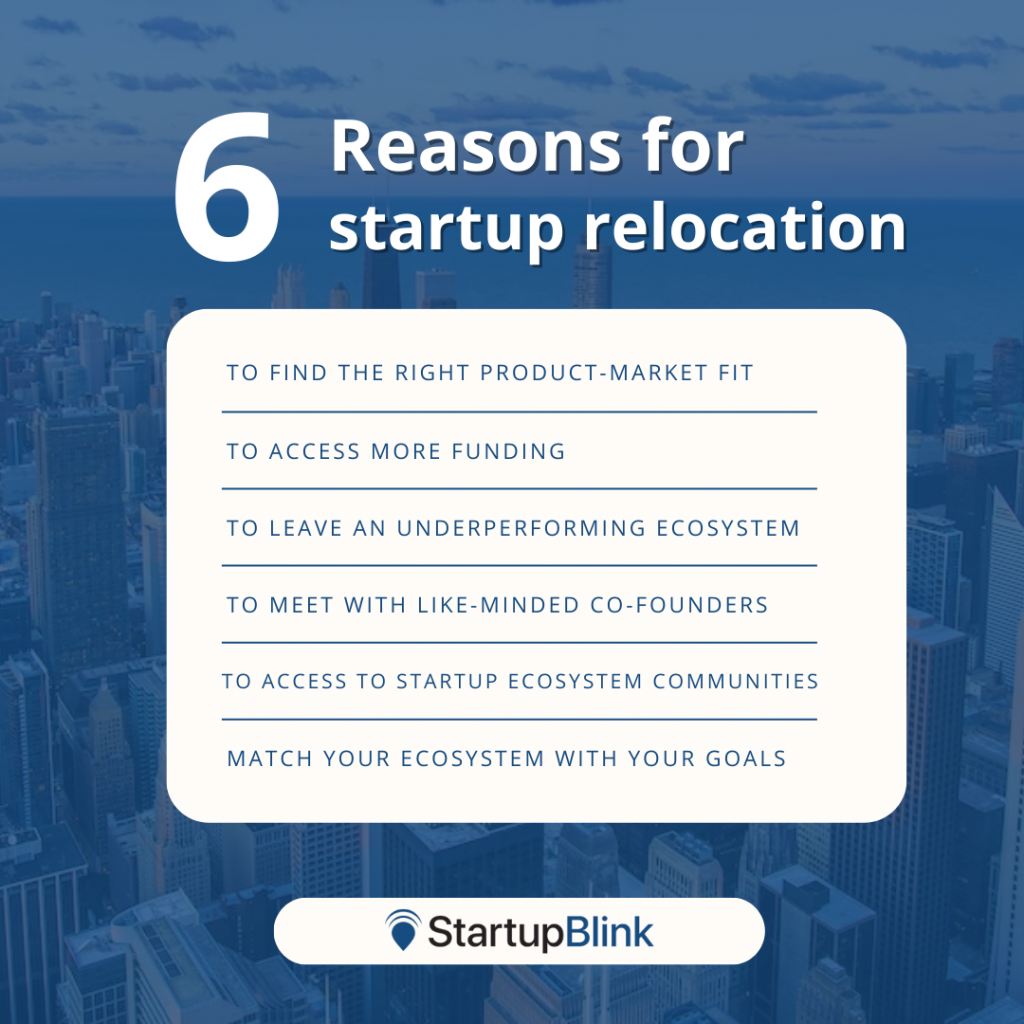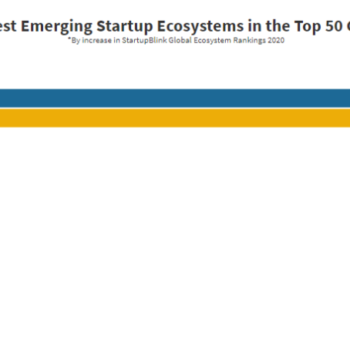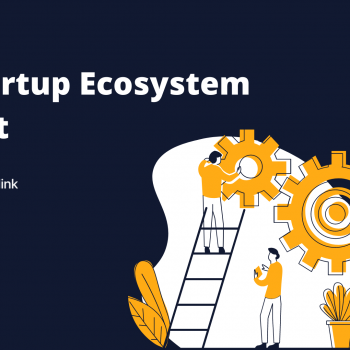In this episode, Martin Jordana and Eli David discuss how to determine the right ecosystem for your startup. If you want to learn what are the factors that indicate if your ecosystem is the right place for your startup, tune in and get more insights.
Why does your startup ecosystem matter?

Usually, when entrepreneurs are dealing with daily tasks and building their next big thing, they miss the big questions: “Am I in the right ecosystem to build my startup?” At StartupBlink, we always say: “The place where you are choosing to build your startup is vastly connected to your results.”
Many entrepreneurs made a decision to relocate when they realized they could not access investment in their current ecosystem. Yet, there are many more perks that a founder can receive from the right ecosystem. One of those perks is meeting with like-minded co-founders. If you are in the right ecosystem, it is very likely that you will meet with another entrepreneur motivated as much as you are to build a startup.
Similarly, the right ecosystem is one that has a community of entrepreneurs where you can meet with people working on different projects. Communities are valuable to grow, as it gives you an opportunity to learn from others and even create synergies through partnerships.
Moreover, people in some startup hubs are more inclined to work with startups that help your startup find a product-market fit. As Eli David highlighted in the podcast, many startups face challenges while searching for the right product-market fit, and it is one of the reasons behind the 90% startup failure rate.
When and Where should I relocate?

As we discussed the importance of product-market fit earlier, the sooner you make the relocation decision, the higher the probability that you will find the product-market fit. Before choosing the ecosystem to relocate, you should come to an understanding that “I won’t build my startup in an underperforming ecosystem.”
So, the next question is to decide what is an overperforming ecosystem for you. First of all, a startup ecosystem is a city, not a country, so your alternatives will be among the cities. By far, San Francisco is the supernova of startup ecosystems. If you would like to build something with a global impact, you might want to consider this city. However, we know not everyone can build in San Francisco, and it is not the right place for everyone.
Match your ecosystem with your goals

If your goal is to build something global, try to choose from the Top 30 cities since much of the startup activity is in those places. Likewise, if you would like to build something with a regional impact, choose the top ecosystems of your region. For instance, if you would like to become a leader in LATAM, Sao Paulo, Mexico City, Buenos Aires, Santiago, and Bogota are some of the top ecosystems you can choose.
Moreover, if your goal is to become the global leader in your industry, some ecosystems excel in specific industries. For instance, Taipei is one of the top cities for Hardware & IoT startups, while Dubai or London are leading hubs for Fintech.
Consider your personal Goals
If your goal is to build something global, try to choose from the Top 30 cities since much of the startup activity is in those places. Likewise, if you would like to build something with a regional impact, choose the top ecosystems of your region. For instance, if you would like to become a leader in LATAM, Sao Paulo, Mexico City, Buenos Aires, Santiago, and Bogota are some of the top ecosystems you can choose.
Moreover, if your goal is to become the global leader in your industry, some ecosystems excel in specific industries. For instance, Taipei is one of the top cities for Hardware & IoT startups, while Dubai or London are leading hubs for Fintech.
Why do some startups stay in an underperforming ecosystem?
Despite the challenges, some entrepreneurs excel in any ecosystem. These are the rare but inspirational success stories such as the Croatian unicorn InfoBip. However, choosing the right ecosystem for your startup just increases your chances of being successful and eliminates some of the many challenges startups faces.
If you are going to stay in an underperforming ecosystem, be conscious of your decision. You can still benefit from the power of technology to globalize some aspects of your startup. Many companies, including StartupBlink, are working remotely with a global workforce and targeting global markets.
Will we ever see ecosystems without geographic constraints?

There are some who believe that, at some point, everything will be on the meta or cloud. As Eli David underlined in the podcast, success stories come out of ecosystems due to the critical concentration of resources like talent and money. Therefore, the vision of having ecosystems on the cloud will require creating hubs virtually, maybe through communities. However, it seems like it won’t happen in the foreseeable future because actual reality still exists, and we still value human contact in our relationships.
Would you like to make informed decisions about relocating your startup?
About Us:
StartupBlink is the world’s most comprehensive startup ecosystem map and research center, working with over 100 government entities worldwide. StartupBlink’s global startup ecosystem map has tens of thousands of registered startups, coworking spaces, and accelerators, creating a robust sample of innovation globally.






